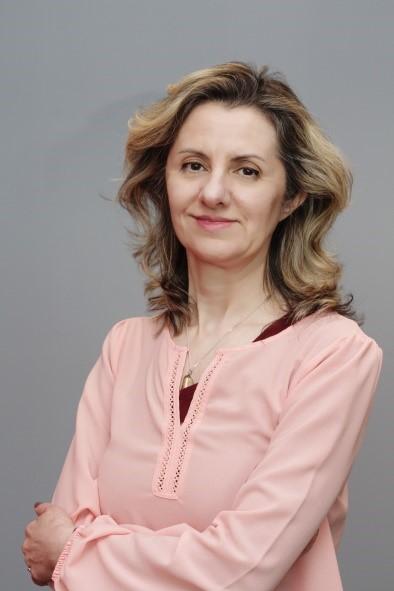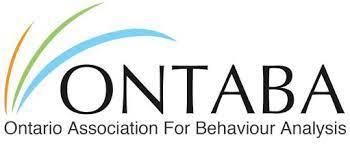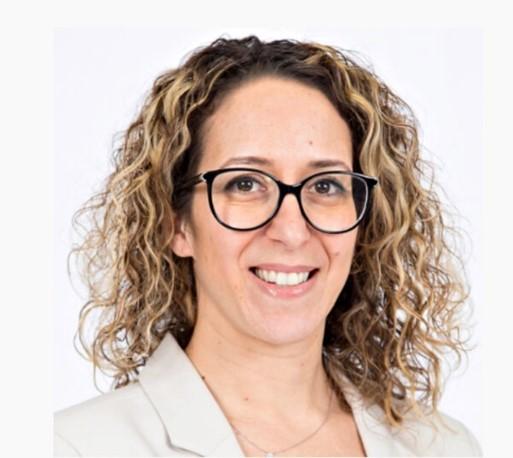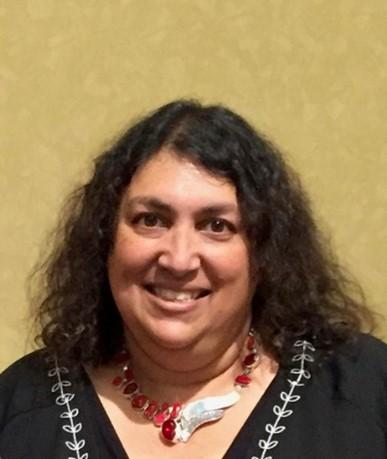Recherche
Légende
|
Accepte de nouveaux clients
|
N’accepte pas de nouveaux clients
|
|
Les services sont fournis en ligne
|
Se déplace dans les secteurs adjacents
|
|
Se déplace dans les secteurs éloignés
|
Clinicien(ne) réglementé(e) / agréé(e)
|
Diagnostic chez l’adulte
Webinar - Equity-Based Health Promotion for Black Mothers of Children with Developmental Disabilities: Consideration for Practice and Policy during COVID-19 Pandemic and Beyond
What is an inclusive approach to health promotion? We will share the findings of a qualitative study of the challenges and strengths of black mothers of children with developmental disabilities. We will also discuss recommendations from the "approaches to care" section of the 2018 Canadian consensus guidelines on primary care for adults with Intellectual and Developmental Disabilities (IDD) and provide suggestions for improving diversity and inclusion within the places where we practice and receive care. We will conclude with recognizing the complexities of the COVID-19 pandemic for racialized families of children and youth with developmental disabilities.
Speakers:
Nazilla Khanlou, RN, PhD
Women’s Health Research Chair in Mental Health, Faculty of Health
Academic Lead, Lillian Wright Maternal Child Health Scholars Program
Associate Professor, School of Nursing York University
Nazilla Khanlou, RN, PhD is the Women’s Health Research Chair in Mental Health in the Faculty of Health at York University and an Associate Professor in its School of Nursing. She is the Academic Lead of the Lillian Meighen Wright Maternal-Child Health Scholars Program. Professor Khanlou’s clinical background is in psychiatric nursing. Her overall program of research is situated in the interdisciplinary field of community-based mental health promotion in general, and mental health promotion among youth and women in multicultural and immigrant-receiving settings in particular. She applies intersectionality-informed frameworks, using diverse research methods, in community-based research. She is founder of the International Network on Youth Integration (INYI), an international network for knowledge exchange and collaboration on youth. She has published articles, books, and reports on immigrant youth and women, and mental health.
Dr. Ullanda Niel is a Family Physician at the Scarborough Center for Healthy Communities in Toronto. She has a Bachelor of Science from Queen’s University and a Doctorate of Medicine from Albany Medical College in Albany, New York. She returned to Canada to complete a residency in Family Practice and a Fellowship in the Primary Care of Adults with Intellectual Disabilities at Queen’s University. She participated in creating The 2018 Canadian consensus guidelines on primary care for adults with Intellectual and Developmental Disabilities and clinical resources for the transition of youth with intellectual disabilities to adult care. Through her community health center, she cares for new immigrants, refugees and people with intellectual disabilities/autism including work at an in-school health clinic. She also works at Participation House, Markham, a group home for adults with cerebral palsy/intellectual disabilities.
Webinaire - Une promotion de la santé porteuse d’équité pour les mères de race noire d’enfants ayant des troubles du développement : Considérations sur les pratiques et les politiques pendant et après la pandémie de COVID-19 (en anglais)
Qu’est-ce qu’une approche inclusive de promotion de la santé? Nous présenterons les résultats d’une étude qualitative sur les difficultés et les points forts des mères de race noire d’enfants ayant des troubles du développement. Nous aborderons également les recommandations tirées de la section « Approches de soins » des Lignes directrices consensuelles canadiennes de 2018 sur les soins primaires aux adultes ayant une déficience intellectuelle ou développementale, et nous formulerons des suggestions sur la façon de promouvoir la diversité et l’inclusion dans les lieux de prestation et de réception des soins. Nous conclurons en reconnaissant la complexité des enjeux que présente la pandémie de COVID-19 pour les familles racisées d’enfants et d’adolescents ayant une déficience développementale.
Conférenciers :
Nazilla Khanlou, infirmière autorisée, Ph.D.
Chaire de recherche sur la santé mentale des femmes, Faculté de la santé
Directrice de la recherche, programme Lillian Meighen Wright de santé maternelle et infantile
Professeure agrégée, École de sciences infirmières de l’Université York
Nazilla Khanlou, IA, Ph.D., est titulaire de la Chaire de recherche sur la santé mentale des femmes à la Faculté de la santé de l’Université York, et professeure agrégée à l’École des sciences infirmières de l’Université. Elle est également directrice de la recherche du programme Lillian Meighen Wright de santé maternelle et infantile. Son expérience clinique porte sur les soins infirmiers et psychiatriques. Ses intérêts de recherche visent le domaine interdisciplinaire de la promotion de la santé mentale communautaire en général, et plus précisément la promotion de la santé mentale chez les jeunes et les femmes des milieux multiculturels et d’accueil des immigrants. Elle base ses recherches communautaires sur des cadres d’analyse fondés sur l’intersectionnalité, en appliquant diverses méthodes de recherche. Fondatrice de l’International Network on Youth Integration (INYI), un réseau international de collaboration et d’échange de savoir sur les jeunes, elle a publié des articles, des ouvrages et des rapports sur les femmes et les jeunes immigrants et la santé mentale.
Dre Ullanda Niel est médecin de famille au Scarborough Centre for Healthy Communities à Toronto. Elle détient un baccalauréat en sciences de l’Université Queen’s et un doctorat en médecine du Albany Medical College à Albany, dans l’État de New York. Elle est retournée au Canada pour effectuer un internat en médecine familiale et un stage de recherche en soins primaires pour adultes ayant une déficience intellectuelle à l’Université Queen’s. Elle a participé à l’élaboration des Lignes directrices consensuelles canadiennes de 2018 sur les soins primaires aux adultes ayant une déficience intellectuelle ou développementale et à la création de ressources cliniques pour la transition vers les soins aux adultes des adolescents ayant une déficience intellectuelle. Par l’entremise de son centre de santé communautaire, elle s’occupe des nouveaux immigrants, des réfugiés et des autres personnes ayant une déficience intellectuelle ou un diagnostic d’autisme, notamment par son travail dans une clinique de santé scolaire. Elle œuvre également à Participation House, un foyer de groupe pour adultes ayant une paralysie cérébrale/déficience intellectuelle, dans la ville de Markham.
Autism Career Connections
Webinar - How Can I Help my Child to Print? Part 3: Making Sense of Line and Spacing with Taunia Clouthier
Part 3 of 4: This webinar will highlight the organization of print onto lined paper. Several types of paper will be reviewed to help better understand what one may best suit a child's needs. Tips and tricks to work on spacing will also be discussed.
Other sessions in this series:
Part 1 of 4: A Printing Readiness Workshop for Parents
Part 2 of 4: Lower Case Letters
Part 4 of 4: Building a Foundation
Speaker: Taunia Clouthier
Taunia Clouthier is an Occupational Therapist who brings 10 years of experience working within the School Health Support OT Services, where she assumes a consultative role in supporting children, parents and staff within the school environment. The skills and knowledge that she has gained over the years has inspired her to create FUNctional Therapy in 2018, a company in which she can further share her knowledge and passions through direct services and workshops. She is very passionate about providing education and believes it is one of the keys to successful growth and development in children.
Webinaire - Comment puis-je aider mon enfant à écrire? Prtie 3: Comprendre les lignes et les espaces avec Taunia Clouthier (en anglais)
Partie 3 sur 4: Ce webinaire porte sur l’organisation de l’écriture sur du papier ligné. Nous passerons en revue plusieurs types de papier, pour comprendre lequel peut le mieux correspondre aux besoins d’un enfant. Nous présenterons également des conseils et des astuces sur l’espacement de l’écriture.
Sessions supplémentaires dans cette série de webinaires:
Partie 1 sur 4: Un atelier de préparation à l’enseignement de l’écriture pour les parents
Partie 2 sur 4: Les lettres minuscules
Partie 4 sur 4: Jeter les bases
Conférenciers: Taunia Clouthier
Taunia Clouthier est une ergothérapeute œuvrant pendant dix ans avec les Services auxiliaires de santé dans les écoles de l’Ontario, où elle joue un rôle consultatif auprès des enfants, des parents et du personnel en milieu scolaire. Les connaissances et les compétences qu’elle a acquises au cours de ces années l’ont inspirée à créer FUNctional Therapy en 2018. Il s’agit d’une entreprise avec laquelle elle peut partager son savoir et ses passions dans le cadre de services et d’ateliers directs. Taunia est une personne extrêmement passionnée par le partage de connaissances, et elle croit que c’est l’une des clés d’une croissance d’un développement réussis chez les enfants.
Webinar - How Can I Help My Child to Print?: Part 4: Building a Foundation with Taunia Clouthier
Part 4 of 4: This webinar will highlight how to develop an understanding of what activities to implement to encourage successful fine motor development and upper extremity strengthening in children.
Other sessions in this series:
Part 1 of 4: A Printing Readiness Workshop for Parents
Part 2 of 4: Lower Case Letters
Part 3 of 4: Making Sense of Lines and Spacing
Speaker: Taunia Clouthier
Taunia Clouthier is an Occupational Therapist who brings 10 years of experience working within the School Health Support OT Services, where she assumes a consultative role in supporting children, parents and staff within the school environment. The skills and knowledge that she has gained over the years has inspired her to create FUNctional Therapy in 2018, a company in which she can further share her knowledge and passions through direct services and workshops. She is very passionate about providing education and believes it is one of the keys to successful growth and development in children.
Webinaire - Comment puis-je aider mon enfant à écrire? Partie 4 : Jeter les bases avec Taunia Clouthier (en anglais)
Partie 4 sur 4: Ce webinaire vous expliquera comment déterminer quelles activités contribuent à encourager le développement de la motricité fine et le renforcement des membres supérieurs chez les enfants.
Sessions supplémentaires dans cette série de webinaires:
Partie 1 sur 4: Un atelier de préparation à l’enseignement de l’écriture pour les parents
Partie 2 sur 4: Les lettres minuscules
Partie 3 sur 4: Comprendre les lignes et les espaces
Conférenciers: Taunia Clouthier
Taunia Clouthier est une ergothérapeute œuvrant pendant dix ans avec les Services auxiliaires de santé dans les écoles de l’Ontario, où elle joue un rôle consultatif auprès des enfants, des parents et du personnel en milieu scolaire. Les connaissances et les compétences qu’elle a acquises au cours de ces années l’ont inspirée à créer FUNctional Therapy en 2018. Il s’agit d’une entreprise avec laquelle elle peut partager son savoir et ses passions dans le cadre de services et d’ateliers directs. Taunia est une personne extrêmement passionnée par le partage de connaissances, et elle croit que c’est l’une des clés d’une croissance d’un développement réussis chez les enfants.
Young Adults with Developmental Disabilities: Barriers to Employment
This research summary focuses on how young people with developmental disabilities (DDs), like all young people, experience exciting opportunities as they move from adolescence to the demands of adulthood. Becoming an adult for the young person with a developmental disability entails exploring new interests, getting to know their community and new service workers, learning work skills and making new friends. Yet, young adults with DDs and their families experience many more challenges and barriers to achieve their goals than families of children with no disabilities.
Les obstacles à l’emploi des jeunes adultes ayant un handicap de développement
Ce sommaire de recherche porte sur la façon dont les autres jeunes, le passage de l’adolescence aux rigueurs de l’âge adulte ouvre de passionnants horizons aux jeunes individus ayant un handicap de développement (HD), qui peuvent alors explorer de nouveaux intérêts, faire connaissance avec de nouveaux aidants et intervenants communautaires, acquérir des compétences professionnelles et nouer de nouvelles amitiés. Cependant, les jeunes adultes ayant un HD, de même que leurs familles, rencontrent beaucoup plus de problèmes et d’obstacles dans l’atteinte de leurs objectifs que les familles d’enfants non handicapés.
Young Adults with Developmental Disabilities & Inclusive Research: Why does it matter?
This research summary focuses on how people with developmental disabilities (DDs) live in conditions of socioeconomic disadvantage. They experience inequality because they have fewer opportunities to achieve education and employment opportunities. They are also excluded because of stigma, and face obstacles to fully participate in their communities. In Canada people with disabilities between 15 and 64 years old have an employment rate of about 22%, the rate for people without disabilities is more than 73% (Statistics Canada, 2015). Discrimination, exclusion and stigma significantly impact on people with disabilities’ mental health and wellbeing.
Jeunes adultes avec un handicap de développement et inclusivité de la recherche : pourquoi est-ce important?
Ce sommaire de recherche porte sur la façon dont les jeunes personnes ayant un trouble du développement (TD) composent avec une situation de défavorisation socioéconomique.. Leurs moindres possibilités de scolarisation et d’emploi sont cause d’inégalité. La stigmatisation est une autre cause d’exclusion pour ces personnes, dont la pleine participation à la vie communautaire se heurte à des obstacles. Au Canada, les personnes handicapées de 15 à 64 ans présentent un taux d’emploi d’environ 22 %, contre plus de 73 % pour les personnes non handicapées (Statistique Canada, 2015). La discrimination, l’exclusion et la stigmatisation nuisent considérablement à la santé mentale et au bien-être des personnes handicapées.
2012 March Break and Summer Funding for Children and Youth with Autism Spectrum Disorder: A Report on Parent Views on the Programs
This report was published in 2012.
For over 35 years, Autism Ontario has worked with the Government of Ontario towards a vision of “acceptance and opportunities for all individuals with ASD”. One initiative of Autism Ontario was to develop a program that would provide direct financial support to families of children with Autism Spectrum Disorders (ASD) to enable them to participate in community-based activities/programs throughout the Summer and March Break vacations from school, such as camps and recreational programs. Financial support for Summer funding was first provided by the Ministry of Children and Youth Services in 2007. Funding could be used by families in a variety of ways. The funding could be used by families to pay for
community recreational/camps programs or one-to-one support over March Break or one-to-one support
during summer holidays.
The direct goals of this program were: (1) to provide families with respite; (2) to support community and recreational participation of children with ASD; (3) to provide high-quality programing opportunities; and (4) to help provide continuity of care during vacation periods defined by the school calendar. Through these four primary goals, it was hoped that several secondary objectives may be achieved: (1) lower parental stress; (2) improvement in skills of the children; and (3) modest improvement in ASD symptomatology. An evaluation component of the program was initiated by Autism Ontario to measure the effective and ineffective elements of the program. This paper will provide an overview of the process involved in the
evaluation of the March Break and Summer Funding program, along with a review of the results of the evaluation. First, a very brief overview of some research supporting the importance of the identified program goals will be reviewed. Next, the evaluation process will be described, followed by a review of the results from the program evaluation. Finally, an executive summary will provide a concise overview of key messages of this evaluation.
Renseignements utiles sur l'iPad pour les élèves qui ont un trouble du spectre de l’autisme et d’autres besoins particuliers
Avec l’introduction sur le marché de la tablette électronique et la multiplication rapide d’applications à l’intention des enfants qui ont un trouble du spectre de l’autisme (TSA), la visite de la boutique d’applications iTunes pour y dénicher celles qui pourraient être utilisées en classe constitue parfois toute une corvée! Toutefois, la nature conviviale de la tablette, son accessibilité et son coût relativement bas ont transformé la façon dont les élèves ayant un TSA peuvent, par exemple, acquérir de nouvelles habiletés, satisfaire aux attentes du curriculum, utiliser des outils de suppléance à la communication et se prévaloir de différentes mesures d’adaptation.
Les faits décrits ci-dessous peuvent aider le personnel scolaire à se constituer une base solide de connaissances et d’habiletés professionnelles qui lui servira à soutenir les élèves ayant un TSA qui utiliseront la technologie de la tablette électronique.
Webinar - Ask The Doctor: Autism & Mental Health: A Focus on Caregivers
This webinar will discuss the importance of supporting caregivers in the autism community and call attention to issues of equity in this domain. It will also make a case for the importance of promoting connectedness and compassion for self and others in programming supporting caregivers, and highlight the CARES program as an accessible option for caregivers looking for such resources.
Speakers:
Dr. Sivapalan
A family doctor by profession, Dr. Sivapalan believes in the potential for change to the current diagnostic landscape for children with Autism. After six years of a busy and fruitful family practice, Dr. Sivapalan left his practice to help facilitate this change. With an interest in child development, Dr. Sivapalan has worked collaboratively with multiple stakeholders to design the M-DOC, a unique developmental screening initiative whose goal was to increase access to diagnosis and intervention support for newcomer communities. In addition, Dr. Sivapalan helped develop the CARES initiative, which employed a task-shifting model to provide mental health support for caregivers and siblings of children with autism. As a social doer, Dr. Sivapalan has initiated and managed various social impact projects both at the local and global level. Most recently, Dr. Sivapalan became the chief operating officer for “The Dunya Project”, a Canadian agri-tech start-up that is building a connected, climate-controlled modular hydroponic habitat to alleviate the devastating gap in access to affordable foods irrespective of climate conditions.
Kiruthiha Vimalakanthan, MA, is a PhD candidate in clinical psychology at the University of Waterloo. She is currently completing her pre-doctoral residency at Surrey Place. Driven by her passion to improve access to mental health supports in diverse communities, Kiruthiha has consulted on various projects at the South Asian Autism Awareness Centre (SAAAC). Kiruthiha’s primary role at SAAAC is the development and supervision of the CARES initiative, which employs a task-shifting peer-based model to provide mental health support for caregivers of children with autism. Preliminary outcomes of this program were recently published in the Journal of Autism and Developmental Disorders.
Webinaire - Demandez au médecin : Autisme et santé mentale – Point de mire sur les aidants (en anglais)
Ce webinaire soulignera l'importance d’appuyer les aidants dans la communauté de l’autisme et abordera les enjeux d'équité dans ce domaine. Il mettra également en évidence l'importance de promouvoir les liens sociaux et la compassion envers soi-même et autrui dans les programmes de soutien aux aidants, et il indiquera en quoi le programme CARES représente une option accessible pour les aidants qui sont en quête de telles ressources.
Conférenciers:
Médecin de famille de profession, Dr Sivapalan croit à la possibilité de changer l’actuel paysage diagnostique pour les enfants autistes. Après six années fructueuses et fort occupées en médecine familiale, Dr Sivapalan a décidé de réorienter sa carrière pour faciliter ce changement. Dans une optique de développement de l'enfant, Dr Sivapalan a collaboré avec de multiples intervenants pour concevoir M-DOC, un outil de dépistage développemental unique en son genre qui vise à améliorer l’accessibilité des soutiens diagnostiques et d'intervention pour les communautés de nouveaux arrivants. Dr Sivapalan a également contribué à la mise sur pied de l'initiative CARES, qui fait appel à un modèle de délégation des tâches pour offrir un soutien en santé mentale aux aidants et aux frères et sœurs des enfants autistes. En tant qu'acteur social, Dr Sivapalan a mis sur pied et dirigé divers projets à impact social, tant au niveau local qu’au niveau mondial. Plus récemment, il a été nommé chef de l'exploitation du « Dunya Project », une jeune pousse du secteur agro-technologique canadien qui bâtit un habitat hydroponique modulaire connecté et au climat contrôlé pour réduire l'écart dévastateur caractérisant l'accès aux aliments abordables, sans égard aux conditions climatiques.
Kiruthiha Vimalakanthan, M.A., doctorante en psychologie clinique à l'Université de Waterloo, termine actuellement son internat prédoctoral à Surrey Place. Farouchement déterminée à aider diverses communautés à avoir un meilleur accès aux soutiens en santé mentale, Kiruthiha a été consultante dans divers projets du South Asian Autism Awareness Centre (SAAAC), où elle s’occupe principalement d’implanter et de superviser l’initiative CARES, qui fait appel à un modèle de délégation des tâches pour offrir un soutien en santé mentale aux aidants d’enfants autistes. Les résultats préliminaires de cette initiative ont récemment été publiés dans le Journal of Autism and Developmental Disorders.
Offrir des choix afin de réduire les comportements non désirés
La formation virtuelle s’adresse aux parents d’enfants autistes ainsi qu’aux aidants qui travaillent auprès d’enfants ou d’adolescents avec un diagnostic d’autisme. La formation explique plus précisément comment offrir des choix qui peut effectivement réduire les comportements non désirés chez un enfant ou adolescent.
Les questions suivantes seront abordées :
• Pourquoi est-ce important d’offrir des choix?
• Que dit la recherche par rapport à l’offre de choix comme stratégie préventive dans la réduction de comportements non désirés?
• Quels sont les différents types de choix que l’on peut présenter à un enfant ou adolescent?
• À quel moment devrait-on utiliser la stratégie d’offrir des choix afin d’éviter des comportements difficiles non désirés et à quel moment devrait-on éviter de l’utiliser?
• À l’aide d’exemples pratiques, comment est-ce qu’on emploie la stratégie d’offrir le choix auprès d’un enfant ou adolescent dans la vie quotidienne?
Webinar - How Can I Help My Child to Print? Part 2: Lower Case Letters with Taunia Clouthier
Part 2 of 4: Learn functional tips and tricks to help teach a child how to print. This webinar will highlight how to teach children lower case letter formations. We will explore using multisensory activities that are fun and motivating. These activities will help encourage success.
Other sessions in this series:
Part 1 of 4: A Printing Readiness Workshop for Parents
Part 3 of 4: Making Sense of Lines and Spacing
Part 4 of 4: Building a Foundation
Speaker: Taunia Clouthier
Taunia Clouthier is an Occupational Therapist who brings 10 years of experience working within the School Health Support OT Services, where she assumes a consultative role in supporting children, parents and staff within the school environment. The skills and knowledge that she has gained over the years has inspired her to create FUNctional Therapy in 2018, a company in which she can further share her knowledge and passions through direct services and workshops. She is very passionate about providing education and believes it is one of the keys to successful growth and development in children.
Webinaire - Comment puis-je aider mon enfant à écrire? Partie 2 : Les lettres minuscules avec Taunia Clouthier (en anglais)
Partie 2 sur 4: Ce webinaire vous donnera des astuces et des conseils fonctionnels sur la façon d’apprendre l’écriture à vos enfants, en mettant l’accent sur la formation des lettres minuscules. Nous aborderons des activités multisensorielles à la fois amusantes et motivantes qui encouragent la réussite.
Sessions supplémentaires dans cette série de webinaires:
Partie 1 sur 4: Un atelier de préparation à l’enseignement de l’écriture pour les parents
Partie 3 sur 4: Comprendre les lignes et les espaces
Partie 4 sur 4: Jeter les bases
Conférenciers: Taunia Clouthier
Taunia Clouthier est une ergothérapeute œuvrant pendant dix ans avec les Services auxiliaires de santé dans les écoles de l’Ontario, où elle joue un rôle consultatif auprès des enfants, des parents et du personnel en milieu scolaire. Les connaissances et les compétences qu’elle a acquises au cours de ces années l’ont inspirée à créer FUNctional Therapy en 2018. Il s’agit d’une entreprise avec laquelle elle peut partager son savoir et ses passions dans le cadre de services et d’ateliers directs. Taunia est une personne extrêmement passionnée par le partage de connaissances, et elle croit que c’est l’une des clés d’une croissance d’un développement réussis chez les enfants.
Empowering Families The “Step Approach Model” for Effective Advocacy
This article argues that families of individuals with ASD can benefit greatly from learning the “Step Approach Model” for effective advocacy. Families of children, teens and adults with ASD (and related diagnoses) sometimes lack the necessary skills and confidence to raise concerns comfortably and constructively with human service systems. Yet, families sometimes have more real political “clout” in affecting change in educational, developmental, social service and health systems than they realize at first (Schields, 1987). When families raise concerns, they stand outside of existing systems. They have access to sources of influence (e.g., mainstream and social media, top government or bureaucratic decision-makers, self-help and advocacy groups) not ordinarily available to people employed by service organizations.
Autistic Creativity
La sexualité et le TSA
Sylvie Grenier vous offre un webinaire conçu pour les parents d’un enfant/adolescent ayant un TSA. Comme parent, vous avez le rôle le plus important dans l’enseignement de la sexualité à votre enfant. Chaque jour, vous êtes les modèles de santé sexuelle, tout en communiquant vos valeurs et croyances. Les adolescents ont besoin d’avoir l’assurance qu’ils ont toujours accès à un adulte de confiance pour appuyer et guider (sans jugement) leur apprentissage envers la sexualité. Le but de ce webinaire est de communiquer les informations nécessaires à la promotion d’une saine sexualité, fondée sur les stratégies en ACA.
Sylvie détient une certification d’associée en analyse du comportement (Board Certified assistant Behaviour Analyst, BCaBA). Elle est une professionnelle bilingue du Nord de l’Ontario, qui se consacre à l’évolution des enfants et adolescents ayant un TSA dans divers environnements (scolaire, foyer, communauté). Elle possède une solide connaissance théorique et pratique des approches fondées sur l’analyse comportementale appliquée (ACA) et cumule plus de 28 ans d’expérience dans le domaine des services développementaux. Elle est certifiée en formation et groupes de sexualité.
Webinar -Continuation of ABA Services During COVID-19 RESTRICTIONS: One Year Later
Applied Behaviour Analysis (ABA) services are typically delivered face-to-face, and often with close physical proximity. Pandemic related restrictions have been in place for over a year, which has had a tremendous impact on ABA services. This panel will include discussion from multiple perspectives including self-advocate, caregiver, and service provider. Panelists will discuss lessons learned so far, benefits and challenges of telehealth, and how services are continuing to be offered and received in these challenging times.
Speakers:
Shiri Bartman, M.A., C. Psych. Associate., BCBA (Clinical Director, Shining Through Centre)
Shiri Bartman is a Psychological Associate registered with the College of Psychologists of Ontario and is a Board Certified Behaviour Analyst (BCBA). She has worked with children and young adults diagnosed with autism, intellectual disability, learning disabilities and behavioural disorders for over 20 years. Shiri has worked in both the public and private sector providing direct service, clinical supervision, staff training, assessment, counselling, and consultation both in Canada and Internationally. She has served on the Board of Directors of the Ontario Association for Behaviour Analysis (ONTABA) in a variety of positions over the last ten years. Shiri is part time faculty at George Brown College and teaches a variety of courses in the Autism and Behavioural Science Program. Shiri is currently the Clinical Director of Shining Through Centre and works closely with families and staff to ensure high quality programming and best practices at each campus.
Dr. Rosemary Condillac, C.Psych, BCBA-D (Associate Professor and Department Chair and Graduate Program Director in Applied Disability Studies, Brock University)
Dr. Rosemary Condillac is an Associate Professor and Department Chair and Graduate Program Director in Applied Disability Studies at Brock University which houses the largest ABA graduate program in Canada. She also serves as the ABAI VCS coordinator for the BCBA course sequences embedded in their ABA Master’s Degree Programs. Dr. Condillac conducts research in ABA, supervises her graduate students’ research, and teaches ABA ethics and professional conduct at the graduate level. Dr. Condillac has worked in the fields of Autism, Intellectual and Developmental Disabilities and ABA for over 30 years in different roles including direct care professional, behaviour analyst, researcher, psychologist, and professor. She received her PhD in School and Child Clinical Psychology at the University of Toronto in 2002. She is a Past President of the Ontario Association for Behaviour Analysis (ONTABA). She remains an active member of the ONTABA Advisory Committee, is Lead on Professional Regulation on their Education and Advancement Committee; and is contributing to their government funded project to develop Ethics and Jurisprudence training materials. Dr. Condillac has authored, “What would you do?” ethics advice column for The ONTABA Analyst newsletter since 2017, answering questions and responding to pertinent shifts in policy and practice in Ontario, Canada.
Avianna Foster, B.Sc. (H) (M.A. Student Applied Disability Studies, Brock University)
Avianna graduated from the University of Guelph in 2016 with Bachelor of Science (Honours) in Psychology: Brain and Cognition. She completed her undergraduate thesis on the effects of peer modelling on street children’s crossing behaviour in a virtual environment. Following graduation, Avianna continued to work as a Research Assistant. In this role, she acted as the lead researcher on a longitudinal study regarding how parental safety practices change as infants go from just being able to sit up on their own, to being able to walk and move around independently. Currently, Avianna is a Master of Arts Student at Brock University in the Applied Disability Studies program with a specialization in Applied Behaviour Analysis (ABA). Her thesis work is focused on assessing the quality of behaviour support plans developed by behaviour analysts. Avianna’s experience working in ABA has included applied experience working with children and adults with disabilities. Previously, Avianna worked as a Behaviour Therapist in a group home setting with children and adults with intellectual and developmental disabilities (IDD). Currently, Avianna works as an Instructor Therapist providing ABA services to children with autism spectrum disorders (ASD).
Andrea Haefele (mother of child with complex needs)
Andrea is an elementary educator and currently on secondment as a Health & Physical Education curriculum consultant for the Ontario Physical Health Education Association. She is also a mother of 2 children. Her son Petie is 9 years old and is a young carer to a sibling with a disability. Bella is 12 years old with complex needs that includes: severe autism spectrum disorder, Pitt Hopkins syndrome, cortical vision impairment and global developmental delay. Andrea is a strong advocate for people with disabilities and has spoken at many professional learning networks such as the hospital for SickKids, the Holland Bloorview Kids Rehabilitation Hospital and Jumpstart Charities. Andrea’s passion is in special education and quality physical education for people with disabilities and is excited to share her journey with you today!
Alec Pemberton (Self-advocate)
Alec Pemberton was diagnosed with autism at approximately 18 months old and received IBI therapy as young as 20 months old. He is now 22 years old and will soon graduate from the Behaviour Science program. Over the past year, students had to move their lessons and placements online. Because of this, Alec has witnessed, from a Zoom screen, how ABA is being applied in the new setting and how new ABA therapists must adapt to a new learning style. He also understands how difficult it is for the family to adapt to a new set of circumstances and massive change in routine. Some of his hobbies include improv acting, swimming, and comedy.
Carobeth Zorzos, M.A., C. Psych., BCBA (Director, Launch Behavioural Health)
Carobeth is Director of Launch Behavioural Health, a multidisciplinary clinic providing evidence based services to children and youth with neurodevelopmental disorders. She is a Board Certified Behavior Analyst and Clinical Psychologist who has worked with children, adolescents, and adults with Autism and other neurodevelopmental disorders since 2001 in a wide variety of settings, including home and centre based applied behaviour analysis (ABA) programs, schools, residential treatment programs, long term care facilities, inpatient mental health settings, children’s aid societies, and rural and remote Indigenous communities.
Philip Lerner (Self-Advocate)
Philip Lerner is 20 years old and currently a full-time undergraduate co-op student at the University of Waterloo, studying for a BMath Honours Statistics and a computing minor. His last co-op position was with NRC-IRAP (Innovation Assistance Program) as a Research Data Analyst. He received ABA therapy when I was 2.5-4 years old. He was put onto a waitlist; however, his parents decided to receive ABA services from a private provider. From his recollection, he enjoyed the process, and his therapist is still currently in touch with his family. Philip kept his autism a secret until he was 16, and then the "Autism Doesn’t End at 5" campaign started. At that point, he realized that he didn’t want to just stand by while essential therapy was taken away from more people just like himself. Now, he is the director of the Ontario Autism Coalition (OAC), and co-chair of the OAC Adult Services Working Group.















